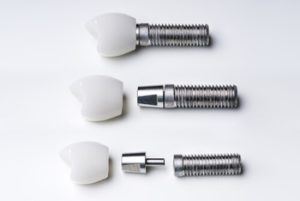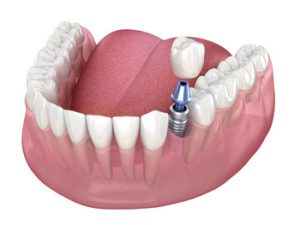Dental tourism is gaining traction, and Turkey has become a top choice for many seeking to enhance their smiles while indulging in a unique travel experience. Imagine getting a dental implant as you immerse yourself in Turkey’s rich historical heritage and bustling markets! Yet, while the prospect of affordable dental procedures in such an exotic setting may seem enticing, it is important to carefully consider several critical factors.
Prior to deciding on dental work overseas, it’s imperative to conduct in-depth research on the dental clinics and the expertise of the dental practitioners. Although Turkey offers picturesque landscapes and deep cultural immersion, the most crucial aspect should be the quality of dental care provided. Ensuring that you receive high-quality treatment should be at the forefront of your decision-making process.
What Are Dental Implants?
Dental implants consist of synthetic tooth roots, typically fashioned from titanium, designed to anchor dental prostheses. Standard types consist of endosteal implants, which are surgically implanted into the jawbone, and subperiosteal dental implants, placed under the gum tissue on the bone. These foundations support various dental replacements, from crowns to bridges.
What Are the Benefits of Opting for Tooth Implants in Australia Versus Turkey?
High Standards of Healthcare Regulation
Advanced Dental Technology and Expertise
In Australia, dental clinics often use cutting-edge technology and follow advanced techniques for dental implant procedures. This includes the use of high-quality dental implant brands known for their durability and effectiveness. Australian dentists are well-trained and frequently update their skills in line with the latest advancements in dental care. This contrasts with varying levels of technology and expertise that you might find in Turkey, where access to the latest and best dental technology might not be as prevalent.
Comprehensive Dental Treatment Plans
When receiving dental implants in Australia, especially in cases like full mouth dental implants, patients benefit from thorough and comprehensive treatment planning. Australian dental professionals typically offer detailed consultations, using advanced imaging and diagnostics to tailor treatments according to each patient’s specific needs. This meticulous planning helps ensure successful outcomes and optimally functional implants that blend seamlessly with natural teeth.
Reliability of Post-Procedure Care
The reliability of follow-up care is another significant benefit of choosing an Australian dental clinic over one in Turkey. Follow-up care is essential for the long-term success of dental implants, involving regular check-ups and maintenance. Australian clinics provide consistent post-procedure support that is easily accessible to patients. In contrast, managing follow-up in Turkey could pose logistical challenges, especially if immediate or long-term adjustments are needed.
Cost Versus Value
While dental implants in Turkey might appear as more affordable dental implants at first glance, it is essential to consider the overall value offered by Australian dental care. The initial costs in Turkey might be lower, but the expense of potential travel, accommodation, and the risk of needing corrective procedures due to lesser standards of care could diminish these savings. In Australia, though the upfront costs might be higher, the expenditure is often justified by the superior standard of care, the longevity of the implants, and the comprehensive healthcare system that supports the patient through the entire process.
Legal and Consumer Protection
Australia offers robust consumer protection laws that cover all medical and dental treatments, providing an additional layer of security for patients undergoing dental treatments. These protections ensure that patients have legal recourse in the unlikely event of a procedure going wrong. The legal framework in Turkey may not provide the same level of protection to international patients, which can be a significant concern when things do not go as planned.
Opting for dental implants in Australia offers numerous benefits over seeking the same treatment in Turkey. From the high standards of medical regulation, access to advanced technology and skilled professionals to the comprehensive and reliable post-care system — the advantages make a compelling case. Patients are encouraged to consider these factors carefully to make an informed decision that prioritises quality, safety, and value in their dental care journey.
What Steps Are Typically Involved in Dental Implant Treatment?
Initial Consultation and Planning
The journey to restore your smile with dental implants begins with an initial consultation. This critical first step in dental implant treatment involves a thorough examination by a dental practitioner who assesses the health of your gums and the density of your jawbone, especially if the implant is to be placed in the upper jaw. The consultation typically includes X-rays or 3D imaging to accurately plan the dental implant procedure, ensuring precise placement and optimal results.
Addressing Bone Density
If bone loss in the upper jaw or any other area has occurred, which is common when a tooth has been missing for some time, bone grafting may be required. This process involves supplementing the existing bone to provide a solid foundation for the implant. Bone grafting is an essential step that ensures the implant will be secure and stable, supporting the new tooth just as a natural root would.
Dental Implant Surgery
The actual dental implant surgery is the next phase. This procedure is usually performed under local anaesthesia, which numbs the area, making the process comfortable for the patient. The dentist makes a small incision in the gum tissue to expose the bone, then drills a small hole into the bone where the dental implant, a titanium post, is carefully inserted.
Healing and Osseointegration
After dental implant placement, the area needs time to heal, a process known as osseointegration. During this period, which can take several months, the implant integrates with the jawbone, creating a strong and durable anchor for the new tooth. This phase is crucial as it ensures that the implant is sufficiently stable to support the pressures of chewing and biting.
Adding the Abutment
After osseointegration has successfully occurred, the next procedure involves placing the abutment, facilitating the connection between the dental implant and the replacement tooth. This minor procedure typically requires reopening the gum tissue to attach the abutment to the implant post. Once in place, the gum tissue is given time to heal around the abutment.
Attaching the Prosthetic Tooth
The last part of the dental implant process involves placing the prosthetic tooth, commonly called a crown. This tooth crown is meticulously crafted to match the hue, shape, and size of your natural teeth, ensuring it harmonises flawlessly with your smile. Once the crown is ready, it is securely attached to the abutment, completing the restoration of the missing tooth.
Each of these steps is conducted with meticulous care and precision, aiming not just to restore function but to ensure that the final appearance is as natural and aesthetically pleasing as possible. Choosing a skilled and experienced dental practitioner is vital to the success of your dental implant surgery, as it involves complex procedures and detailed knowledge of facial anatomy and dental mechanics.
How Can Dental Implants Improve Overall Dental Well-being?
Preserving Jawbone Integrity and Facial Structure
Dental implants are a game-changer in maintaining the structural integrity of the jawbone after tooth loss. When a tooth is missing, the area of the jawbone that supported the tooth begins to deteriorate due to lack of stimulation. This process, known as resorption, can lead to a weakening of the jaw and changes in the facial structure, often resulting in an aged appearance. Dental implants act as artificial tooth roots, providing the necessary stimulation to keep the jawbone healthy and intact. This stimulation helps prevent bone loss, maintaining the shape of the face and the strength of the jaw.
Enhancing Oral Functionality
The primary function of teeth is to aid in eating and speaking, and missing teeth can severely compromise these abilities. Dental implants restore these essential functions by replacing the missing teeth with prosthetics that look and feel like natural teeth. The stability of these implants allows for a return to normal eating habits, enabling individuals to enjoy a wider variety of foods. Furthermore, the secure fit of implants improves speech, eliminating the slurring or whistling sounds often associated with dentures.
Reducing Load on Remaining Natural Teeth
Unlike traditional bridges, which require grinding down adjacent teeth to serve as anchors for the prosthetic teeth, dental implants do not compromise the health of neighbouring teeth. This significant benefit preserves the natural tooth structure and distributes biting forces evenly, which is less stressful for the remaining natural teeth. This preservation is crucial in preventing further oral health issues and prolonging the life of the natural teeth.
Long-Term Oral Health Benefits
Dental implants deliver substantial, long-term advantages for oral health. They prevent adjacent teeth from shifting into empty spaces left by missing teeth, helping to uphold proper teeth alignment. Proper alignment is critical for the health of your teeth, gums, and jaw joints, reducing the risk of complications such as jaw pain, temporomandibular joint disorder (TMJ), and periodontal disease. The improved alignment also makes it easier to practise effective oral hygiene, further enhancing overall dental health.
Minimising the Risk of Gum Disease
Dental implants play a vital role in reducing the risk of gum disease. Gaps left by missing teeth can act as traps for food particles and bacteria, leading to increased plaque buildup and the risk of periodontal disease. By filling these gaps, dental implants prevent the accumulation of bacteria, helping to maintain healthy gums. Additionally, the ease of cleaning implants—similar to how natural teeth are cleaned—helps in maintaining gum health and preventing the conditions that lead to periodontal disease.
Dental implants offer a robust solution not just for cosmetic enhancement but also for the comprehensive improvement of oral health. By preserving natural tooth structure, maintaining jawbone density, enhancing functionality, and preventing gum disease, implants contribute significantly to the long-term well-being of the entire oral cavity. Choosing to invest in dental implants is not just about restoring smiles but also about making a profound, positive impact on overall dental health.
How Can Dental Implants Be Cared for to Maintain Their Longevity?
Establishing a Robust Oral Hygiene Routine
Proper oral hygiene is fundamental to the longevity of dental implants. Just as with natural teeth, implants necessitate regular cleaning to prevent plaque and tartar buildup, potentially leading to gum disease. Patients should brush their teeth twice daily using a soft-bristled toothbrush and non-abrasive toothpaste to maintain oral health.
This prevents scratching the surface of the implants. Additionally, flossing daily with unwaxed floss or floss designed specifically for implants is essential to remove plaque from under the gum line and around the implant posts.
Routine Professional Cleanings and Check-ups
Typically, it’s recommended to see your dentist every six months, although some patients may need more frequent visits depending on their individual circumstances.
Managing Oral Hygiene Tools
Using the right tools can make a considerable difference in caring for dental implants. Alongside a soft-bristled toothbrush and non-abrasive toothpaste, incorporating an interdental brush or a water flosser can enhance the cleaning regimen. These tools are particularly effective at removing debris from around the implant and can be easier to manage for patients who find traditional floss challenging to use. Ensuring that these tools are always clean and in good condition is also essential for effective care.
Protecting Implants from Physical Stress
While implants are designed to be long-lasting, they are not indestructible. Patients should avoid habits that could exert excessive force on implants, such as chewing ice, biting fingernails, or using teeth to open packaging. These activities can cause micro-cracks in the materials or even dislodge the implant crown. For those who grind their teeth at night, asking a dentist about a custom-made night guard can prevent damage to both the implants and the natural teeth.
Avoiding Harmful Products
Certain mouthwashes and tooth-whitening products contain ingredients that can be harmful to dental implants. Products containing alcohol or abrasive components may damage the implant surface or irritate the surrounding soft tissues. Consulting with a dental professional about which products are safe to use is advisable to ensure that your oral care routine supports the health and longevity of your implants.
Immediate Action on Discomfort or Changes
Should any discomfort, swelling, or unusual changes around the implant site occur, it is crucial to contact your dentist immediately. Early detection of potential issues, such as infection or implant loosening, can significantly enhance the likelihood of correcting these problems without major interventions. Prompt action not only helps preserve the implant but also protects the overall health of your mouth.
Adequate care and regular dental visits are essential to ensuring that your dental implants last as long as possible. By following these guidelines, patients can enjoy a functional and aesthetically pleasing smile for numerous years. Investing time in caring for your implants is just as important as the initial investment in receiving them.
What Are Suitable Food Options Post-dental Implant Surgery?
Recovering from dental implant surgery isn’t just about allowing your body time to heal—it’s also about providing it with the right nutrients that aid in this healing process. In the initial days following your surgery, your mouth will be tender, and eating your usual diet might be challenging. Selecting the proper foods not only ensures comfort but also enhances your body’s ability to heal efficiently.
Immediately After Surgery: Soft Foods and Liquids
In the first 24 to 48 hours post-surgery, it’s best to consume foods that require minimal chewing. This helps to keep the surgical site undisturbed and minimises the risk of irritation or infection.
- Smoothies and Protein Shakes: Packed with essential vitamins and protein, these are ideal for maintaining your nutritional intake when solid foods are too painful to consume. Opt for non-citrus bases like bananas or yoghurt to avoid irritation.
- Broths and Soups: Warm (not hot) soups and broths are soothing and provide hydration, which is crucial for healing. Creamy soups that are blended smooth are excellent as they are gentle on the mouth and filling.
- Applesauce and Mashed Bananas: These fruit options are soft and easy on the mouth while also adding some natural sweetness to your diet.
Transitioning to More Substantial Foods
As your healing progresses, you can start to incorporate more substantial foods into your diet. However, it’s important to continue focusing on foods that are easy to chew and swallow.
- Scrambled Eggs: Rich in protein and very soft, scrambled eggs are an excellent choice for increasing your nutrient intake without requiring extensive chewing.
- Cottage Cheese: High in protein and soft in texture, cottage cheese can be a comforting food during your recovery period.
- Mashed Potatoes: Smooth mashed potatoes can be flavoured with gravy or butter and offer good nutritional value along with a comforting texture.
Foods to Enhance Healing
While your mouth is healing, it’s beneficial to choose foods that naturally support wound healing and are gentle on your gums.
- Oatmeal: Soft and easy to customise for flavour, oatmeal is gentle on the surgical site while being hearty enough to provide a satisfying meal.
- Fish: Fish such as salmon and tilapia are soft to chew and high in omega-3 fatty acids, which are recognised for their anti-inflammatory properties that can aid healing.
- Avocado: This superfood is not only soft but packed with healthy fats and vitamins that are paramount for healing.
Foods to Avoid
To prevent any complications and ensure a smooth recovery, there are certain foods you should avoid immediately following your surgery:
- Crunchy and Hard Foods: Nuts, chips, and raw vegetables can disrupt the implant site and should be avoided until healing is well advanced.
- Sticky Foods: Items like caramel and certain candies can pull at the implant site, increasing the risk of irritation or damage.
- Spicy and Highly Acidic Foods: These can irritate the gums and should be avoided in the early stages of healing.
Choosing the right foods after dental implant surgery is paramount for a smooth recovery and optimal healing. By focusing on soft, nutritious foods and avoiding those that can cause irritation or harm, you set the stage for a successful healing process and a quicker return to your normal diet. Listen to your body and your dental professional’s advice, and allow yourself the time you need to heal effectively.
Do Dental Implants Cause Discomfort?
Many people worry about the pain associated with dental procedures, but you may be relieved to know that discomfort from dental implant surgery is typically minimal. The procedure is usually performed under local anaesthesia, which numbs the area effectively, making the process relatively stress-free. Once the anaesthesia wears off, experiencing mild tenderness and swelling is common and can be eased with over-the-counter pain relievers as instructed by your dentist. Most patients report that the discomfort is much less than anticipated and well worth the lasting benefits of having a fully functional and aesthetically pleasing smile.
Elevate Your Smile: Choose Quality Dental Implants in Australia
Reach out to us at 07 4801 7035 to book your consultation. Join us on your journey to a beautiful, enduring smile with our expert team, who will guide you through every step of the process, ensuring a smooth and fulfilling experience. Our commitment to excellence ensures that every detail is considered to provide you with the highest standard of care and satisfaction with your new smile. Contact Casey Dentists today!
Note: Any surgical or invasive procedure carries risks. Before proceeding, you should seek a second opinion from an appropriately qualified health practitioner.
References:
https://www.dentalhealth.org/dental-implants
https://www.medicinenet.com/dental_implants/article.htm



